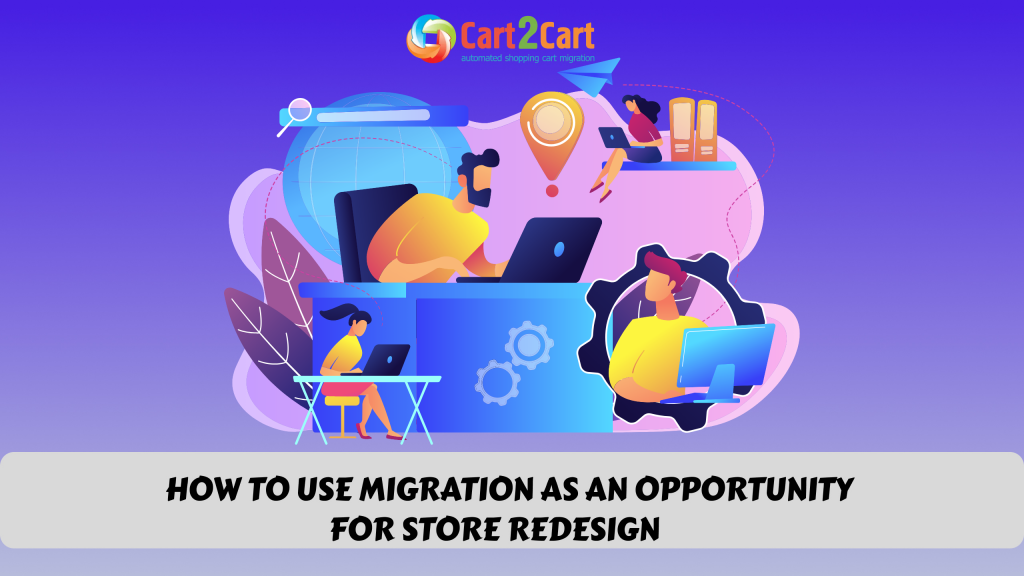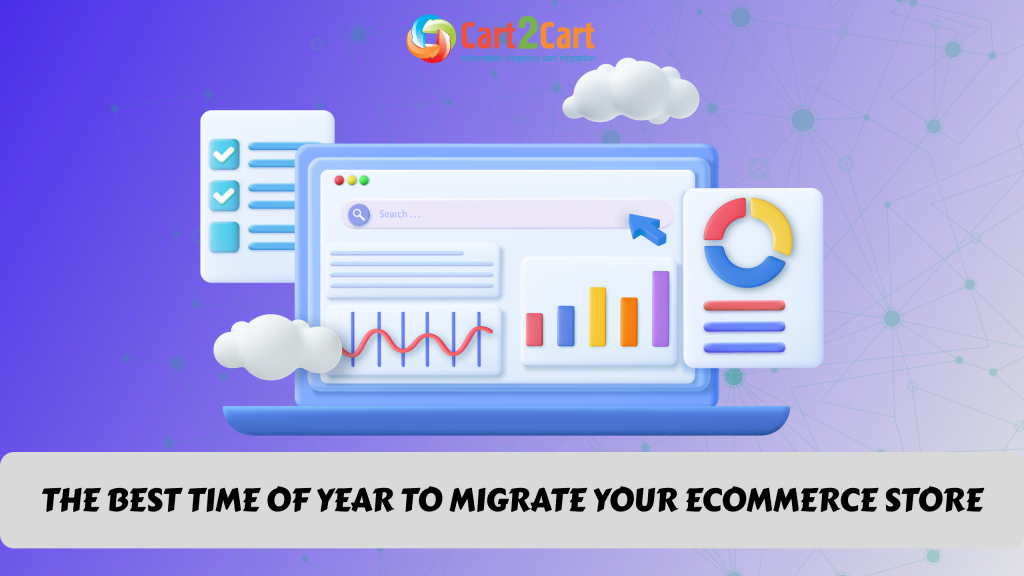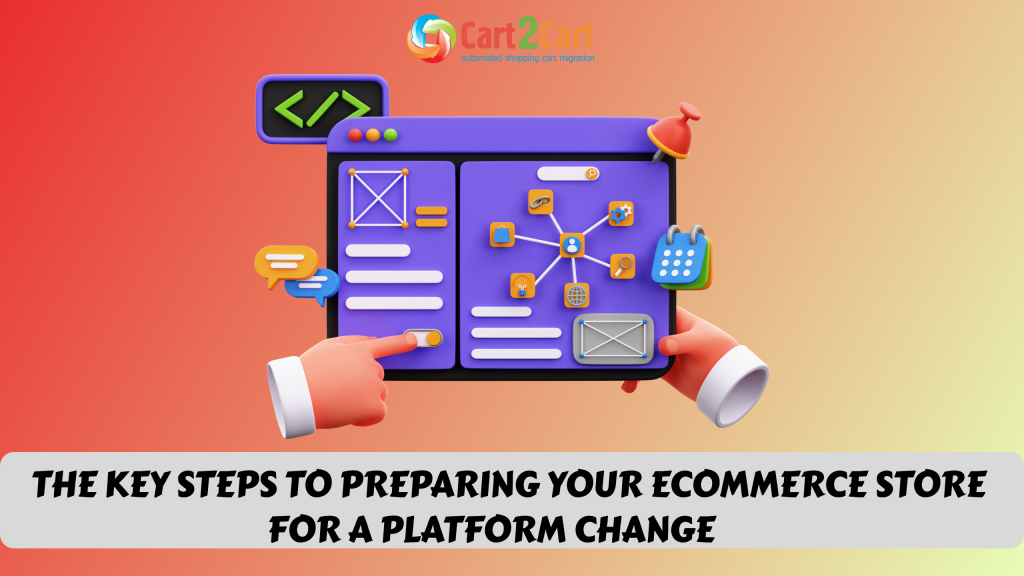There isn’t a standard one-size-fits-all eCommerce website cost. You can spend as little as $100 to as much as $100,000 to set up a fully functional online store. It all boils down to the size, type, structure, and level of customization required for your business.
Aside from the upfront costs associated with building an eCommerce website, you must also take into account the ongoing expenses required to keep your store running. Think—data backups, inventory management, shipping, security, marketing, etc.
In this piece, we take a deep dive into the true cost of setting up an eCommerce website from scratch.
Ecommerce Website Price at a Glance
|
Small Business |
Mid-Sized Business |
Enterprise-Level Business |
|
|
$30 - $1,000 |
$1,500 - $6,000 |
$10,000 - $30,000 |
|
|
$30 - $500 per month |
$250 - $1,000 per month |
$400 - $3,000 per month |
|
|
$30 - $100 per month |
$150 - $2,000 per month |
$10,000 - $30,000 per month |
|
|
$100 - $1,500+ |
$3,000 - $20,000 |
$30,000 - $100,000 |
|
|
From 0.6% - 3.49% + 30¢ per transaction |
From 0.6% - 3.49% + 30¢ per transaction |
From 0.6% - 3.49% + 30¢ per transaction |
|
|
$10 - $1,000+ per month or one-off |
$2,000 - $10,000 |
$500 - $10,000 per custom plugin |
|
|
$1,000 - $5,000+ per month |
$10,000 - $50,000+ per month |
$50,000 - $100,000+ per month |
What to Consider When Assessing the Cost of an Ecommerce Website
When evaluating your budget, you want to make sure the final product meets your business needs and expectations. The last thing you need is to run into unprecedented expenses long after your budget has run out. Here are a few things to keep in mind before you start building your website.
What Type of Store Do You Intend to Have?
An online store that sells services isn’t the same as one that offers products. In the latter, you must first establish how many different products and corresponding models you’ll feature. You’ll also need to determine whether your target market is other businesses (B2B) or consumers (B2C). Figuring this out from the get-go will help you identify the type of eCommerce platform you’ll need and its associated costs.
Will Your Website Be Your Primary Point of Sale?
Selling products online means you’ll need to factor in inventory and shipping costs. If you already have a physical store and are looking to expand your business reach with an online storefront as well, you’ll want an eCommerce solution that can seamlessly integrate with your existing inventory management and point-of-service (POS) systems. There are costs associated with each of these.
How Big is Your Budget?
As you start researching the eCommerce platforms available, you’ll find that some offer more features and customization options than others. You’ll also find that the eCommerce website pricing of different solutions varies widely across the spectrum. Before you get carried away, establish what your must-haves are and the add-ons you'll need to get your website off the ground. Start with the basics and work your way up.
Once you’ve compiled a list, nail down your budget and start shopping around for solutions that fall within that scope. As a rule of thumb, it is always better to stay under budget. That way, you leave a little wiggle room for any unprecedented costs that may emerge later on.
What Shipping Options Do You Intend to Offer?
Shipping costs are often overlooked when setting up eCommerce websites. It's important to establish, from the outset, whether you have the resources and capacity to handle your store's shipping needs in-house or whether it might be better to outsource them to a third party. The same logic applies to the payment options you'll offer.
Have You Factored in the Cost of Your Time?
Time is money. If you opt for a purpose-built solution like Shopify, you can have your eCommerce store up and running in minutes. Others, like Magento and WooCommerce, will require you to spend a significant chunk of time designing your storefront, customizing product pages, designing checkout carts, connecting different apps and plugins to enhance your store’s functionality, continuously updating and maintaining your store, and more. The setup process can run upwards of 100 hours, excluding the time it takes to add individual product listings.
See also: Magento vs. WooCommerce: Which One Reigns Supreme?
1. Cost of Ecommerce Website Design
To assess how much you’ll spend on building your website, you must first determine which approach to take and what outcome you want.
On the one hand, you could use website builder software to design your website yourself. Alternatively, you could outsource the task to a web developer to do it for you. You could retain a web development agency to build your eCommerce website from scratch and handle every aspect of its design.
The choice of one over the other comes down to the size of the online store you’re building. Are you setting up a small-scale, mid-sized, or enterprise-level store? Here’s an estimate of the costs to expect.
|
Small Business |
Mid-Sized Business |
Enterprise-Level Business |
|
$30 - $1,000 |
$1,500 - $6,000 |
$10,000 - $30,000 |
2. Ecommerce Website Price of Domain Registration
Your website’s domain name is perhaps one of the cheapest aspects of setting up your online store. Costs typically range between $4 and $60, depending on the specific domain you want. Most top SaaS platforms offer free domain registration for the first year. The catch is—you would need to pay for the next 2-3 years upfront to qualify for the offer.
If the domain name you want has already been taken, you can purchase it from the business that owns it. This option is significantly more costly and could set you back tens of thousands of dollars. It’s a question of how badly you want it.
|
.com |
.org |
.us |
.io |
|
$10 - $20 per year |
$7 - $10 per year |
$4 - $20 per year |
$45 - $60 per year |
3. Web Hosting Costs for Your Ecommerce Site
The host is the infrastructure upon which your eCommerce website is built. It is where your domain name, website, data, and SSL certificate live.
Whether or not web hosting is included in your monthly plan comes down to the eCommerce platform you choose. If you opt for a self-hosted option like WooCommerce, you will need to pay a third-party provider to host your website. On the other hand, SaaS solutions like Shopify and Wix will host your store for you and handle the technical aspects that come with it.
|
Small Business |
Mid-Sized Business |
Enterprise-Level Business |
|
$30 - $500 per month |
$250 - $1,000 per month |
$400 - $3,000 per month |
See also: WooCommerce Pricing: How Much Does It Cost to Run a Store?
4. Software Costs for Your Ecommerce Website
All eCommerce websites have the same basic components—product pages, shopping carts, checkout pages, and inventory management. Building each of these components from scratch is a time-consuming process and requires a great deal of skill and effort. For this reason, most online businesses rely on SaaS solutions specifically built for eCommerce.
On the lower end of the cost spectrum, you have platforms like Shopify and Wix that are built for small to mid-sized stores. On the higher end, you have eCommerce solutions like Magento that are built for enterprise-level businesses. Here’s an estimate of what to expect with regard to software costs.
|
Small Business |
Mid-Sized Business |
Enterprise-Level Business |
|
$30 - $100 per month |
$150 - $2,000 per month |
$10,000 - $30,000 per month |
5. Branding Costs for Your Ecommerce Site
Branding is how you differentiate your company from its competitors. It’s about defining your business’s mission, vision, values, and culture and designing elements that relay this message clearly to potential customers.
Small eCommerce businesses typically manage their branding activities in-house. Most rely on automated brand design tools, such as AI-powered logo makers to design and build their logos, website builders to customize pre-designed templates, domain name generators to generate business name and domain name ideas, and more.
Mid-sized businesses usually outsource branding tasks to third-party consultants. They typically enlist the services of animation designers, UI/UX designers, product designers, graphic designers, freelancers, and other creative professionals who can breathe life into their brand.
Enterprise-level businesses usually work with multidisciplinary agencies to fine-tune every aspect of the branding process. We’re talking—art directors, branding strategists, PR experts, copywriters, illustrators, expert designers, and so forth. Here’s an estimate of the branding costs to expect, depending on the size of your business.
|
Small Business |
Mid-Sized Business |
Enterprise-Level Business |
|
$100 - $1,500+ |
$3,000 - $20,000 |
$30,000 - $100,000 |
6. Payment Processing Software Costs for Your Ecommerce Website
While payment processing costs are not considered startup expenses per se, you should still factor them in when developing your business budget. Different payment platforms offer different payment options, each of which has its own associated cost. For instance, PayPal merchant fees range between 2.29% and 3.49% + a fixed fee. Shopify charges between 0.6% and 2% for third-party payment providers. Stripe charges 2.9% + 30¢ for domestic transactions.
|
Small Business |
Mid-Sized Business |
Enterprise-Level Business |
|
From 0.6% - 3.49% + 30¢ per transaction |
From 0.6% - 3.49% + 30¢ per transaction |
From 0.6% - 3.49% + 30¢ per transaction |
7. Ecommerce Website Pricing for Plugins and Add-ons
By this point, you’ve picked an eCommerce platform, customized your storefront, registered a domain name, picked a suitable website hosting provider if you opted for a self-hosted solution, and integrated a suitable payment gateway. You can now turn your focus to your store’s functionalities.
What features do you want your online store to have? Which ones aren’t included in the platform’s native capabilities?
There are several ways of integrating the features you desire, some more costly than others.
If you have a small business, you’ll have an easier time searching for the required integrations in your platform’s app store before installing them as add-ons. Most of them are organized into categories, including, but not limited to, apps for store management, orders and shipping, marketing and conversion, sales processes, and more. Some are subscription-based, while others require a one-off payment for lifetime access.
Mid-size to enterprise-level businesses might require a higher level of customization to integrate additional features that your run-of-the-mill plugins might not have. For this reason, you might have to retain the expertise of skilled developers to incorporate additional features or develop custom plugins for your eCommerce website from scratch. The labor costs of these professionals can range anywhere from $50 to $150 per hour. Custom plugins can cost upwards of $500 each.
|
Small Business |
Mid-Sized Business |
Enterprise-Level Business |
|
$10 - $1,000+ per month or one-off |
$2,000 - $10,000 |
$500 - $10,000 per custom plugin |
8. Marketing Costs for Your Ecommerce Website
As amazing as your online store might be with regard to its design and overall functionality, it counts for nothing if no one can find it. As your website nears completion, you'll need to build a marketing strategy to drive traffic to your store. Your strategy should include a healthy mix of pre-launch and post-launch campaigns and lead conversion activities.
Pre-launch campaign costs include:
- Pay-per-click advertising: You’ll need an estimated budget of $1,000 - $10,000 for an average $2.59 cost-per-click (CPC).
- Influencer marketing: Micro and macro-influencers charge anywhere from $100 - $10,000 per post, respectively.
- Press releases: Skilled professional writers typically charge between $500 and $2,000 for each press release.
Post-launch campaign costs include:
- Search engine optimization (SEO): On average, SEO agencies charge $150 - $250 per hour, which translates to roughly $3,000 - $10,000 per month.
- Social media marketing: You should expect to spend anywhere from $500 - $10,000 per month on social media marketing. Keep in mind that this is different from social media management, which comes with its own price tag.
Lead conversion costs include:
- Email marketing: For small to medium-sized businesses, email marketing costs typically range between $500 and $2,000 per month. Enterprise-level businesses can expect to spend upwards of $5,000 per month.
- Customer relationship management (CRM): The prices of basic CRM systems with basic features usually start at $15 per month. Enterprise-level systems with advanced functionalities cost upwards of $100 per month.
|
Small Business |
Mid-Sized Business |
Enterprise-Level Business |
|
$1,000 - $5,000+ per month |
$10,000 - $50,000+ per month |
$50,000 - $100,000+ per month |
9. Ongoing Costs to Consider for Your Ecommerce Store
So far, we’ve explored the upfront costs of setting up an eCommerce website. That aside, you must also factor in the ongoing costs associated with running your online store. These include expenses related to:
- Data backups: The costs associated with backing up your site data will depend on the size of your files. This is applicable to self-hosted solutions. Hosted eCommerce platforms usually include this cost in their monthly subscription.
- Inventory management: All online retail stores have some type of inventory associated with them in addition to shipping costs, whether these are handled in-house or through a third party.
- Security: In addition to your website's SSL certificate, you'll want to integrate an extra layer of protection by installing security software. That way, you can protect your store from hackers and emerging cybersecurity threats.
- Marketing: PPC advertising, influencer marketing, SEO, social media marketing, and email marketing should form part of your ongoing costs to increase brand awareness and ramp up traffic to your website.
See also: Prestashop Pricing: Calculate the Total Cost of a Prestashop Store.
Final Thoughts
The expenses associated with building and setting up a fully functional online store can vary widely depending on the scope of your eCommerce project and the level of customization required. If you’re willing to invest the time to learn, you can set up a pretty solid online store fairly easily with a hosted solution that comes with a website builder. Think Shopify, Wix, etc.
On the other hand, if you have the budget for it, you can employ professional assistance to customize your eCommerce website to your desired level.
When setting up a small eCommerce website, your upfront costs could run anywhere between $500 - $1,000. If you're a mid-sized business, you should expect to spend $1,500 - $5,000 as an initial investment. The upfront costs to enterprise-level firms are upwards of $10,000 - $100,000.
That said, if you’ve outgrown your existing eCommerce provider, you don’t have to build a new online store from scratch. You can move your website to a different eCommerce solution using Cart2Cart. Our automated shopping cart migration tool will transfer your storefront to a platform of your choice with no downtime or risk of losing data.
Want to see it in action? Sign up to Cart2Cart today for a free demo.
FAQs
How much does an eCommerce website cost?
Costs can vary widely. It comes down to the size of your business and the level of customization and functionality required. A small business can expect to spend $500 -$1,000. A mid-sized business should expect to spend $1,500 - $5,000 as an initial investment. The upfront costs for an enterprise-level business range from $10,000 - $100,000 and up.
What is the cheapest website for eCommerce?
Shift4Shop, Ecwid, Shopify, and Wix are by far the most affordable eCommerce platforms. Ecwid, in particular, is free for a maximum of 10 products.
What are eCommerce fees?
Different payment platforms offer different payment options, each of which has its own associated cost. For instance, PayPal merchant fees range between 2.29% and 3.49% + a fixed fee. Shopify charges between 0.6% and 2% for third-party payment providers. Stripe charges 2.9% + 30¢ for domestic transactions.
How much does a Shopify eCommerce website cost?
Shopify is a hosted eCommerce solution and offers four tiered plans. The choice of one over the other depends on the size and unique requirements of your business:
- The Basic plan costs $24 per month and is suitable for solo entrepreneurs.
- The Shopify plan costs $69 per month and is ideal for companies with small teams.
- The Advanced plan costs $299 per month and is suitable for scaling businesses.
- The Plus plan costs $2,300 per month and is ideal for high-volume merchants with complex businesses.



 March 31, 2025
March 31, 2025 


